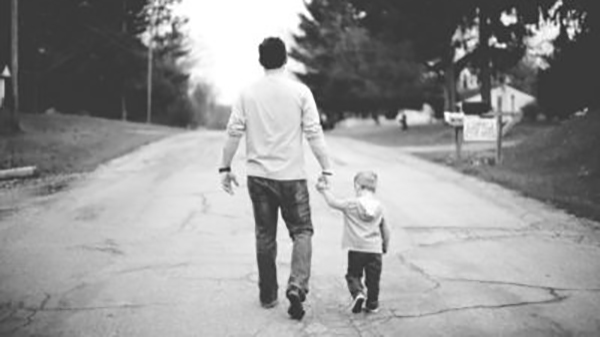Many children come into foster care because they have experienced abuse or neglect. This kind of neglect has often been happening in their families for generations, making it challenging to stop the cycle. This is where faith-based foster care organizations like the Alabama Baptist Children’s Homes & Family Ministries really shine.
RELATED: For more stories on foster care and adoption, click here.
“There aren’t many people who just wake up and say, ‘I’m going to hurt my kid today.’ Those people don’t exist. They all love their kids. They’re just in really, really hard circumstances,” said Elise Vincent, ABCH area director for Central Alabama.
The movie “Sound of Hope: The Story of Possum Trot” premiered in July with a primary goal of bringing awareness to the current adoption crisis in America.
In the small town of Possum Trot, Texas, 22 families adopted 77 children, showing that by leaning on God and each other, they could make a dent in that area’s foster-adoption system, even with the children who had experienced the most trauma.
Meanwhile, ABCH is fighting a similar battle — but on the foster care side.
The difference

“There are 6,000 (foster) kids across the state. Odds are that you know some of these kids. These are kids in your neighborhoods, in your schools, that you’re seeing at the grocery store,” said Jeff Hurn, ABCH engagement specialist.
“The difference that we want to make is, we are a faith-filled Christian organization. Our foster parents are Bible-believing Christians. We want to place kids in a situation where they can hear about Jesus and experience the love of Christ,” Hurn said.
Though fostering children is difficult in the best of circumstances, ABCH works hard to support the foster families throughout the entire process.
First step
The first step is training. Every foster family throughout the state must go through a 10-week training process called TIPS (Trauma Informed Partnering for Safety and Permanence). ABCH uses this time to learn about the families — what they do well and needs they might have.
Home studies, interviews and background checks follow. They make sure that the family has the space and income needed.
ABCH adds an additional step, requiring their families to be active in a local church and submitting a reference from their pastors.
Though most of these families are Baptist, ABCH knows that the only way to get those 6,000 children into good homes is to work with “churches with the big ‘C,’” all of God’s Church.
Adapting to the unpredictable
Foster care agencies deal constantly with change. Every child is different. Every situation is different. The federal and state governments often change policies, making the process “very, very messy” with a “high level of unpredictability.”
“On bad days, I’m tempted to say the system is broken,” said Rod Marshall, president and CEO of ABCH. “The reality is it’s just a remarkably complex system. And quite frankly, I want it to be remarkably complex, because if you just had a one-size-fits-all solution, that is not going to serve children well.”
Not alone
This can leave foster parents feeling alone. However, ABCH parents are supported.
The social workers have small caseloads. Pathways Professional Counseling, a ministry of ABCH, provides licensed, certified therapists who work with the children, foster families and biological families. There are child- and parent-friendly spaces for visitation. The families are surrounded by prayer and are able to support each other.
Christmas, Easter and birthdays are special times with many gifts and events. Every August, each child goes to school with a new backpack, clothes, shoes and teacher-requested supplies. They have done their summer reading and are prepared to begin school without the stigma that can comes with being a foster child.
In addition, they are cared for by their churches. Sunday School classes, small groups and women’s ministries are a few of the ways churches provide tangible support and prayer to meet needs of the families.
“If our foster homes are exceeding the success rate of other agencies’ foster homes, we cannot look away from the fact that it’s the faith-based orientation and the involvement of the local church that makes the difference between why we’re getting different outcomes than others are getting,” Marshall said.
Concerted effort
ABCH children who are behind in school can catch up. Those with behavior issues can learn healthy ways to cope. Those aging out can get help transitioning to jobs, the military or college without debt.
However, it’s going to take a concerted effort for continued success. More foster parents and finances are the only obstacles preventing ABCH from caring for more children.
“It’s our job to go tell our story, to say, ‘Hey, is God calling you to foster?’ and to say, ‘Hey, not everyone’s called to foster, but your church could help support foster families, host TIPS or give financially, fulfilling the call of James 1:27.’
“Can you help us help these children?” Hurn asked.
“It goes without saying that the Church could absolutely end the foster care crisis in the state. There are about 2,800 Southern Baptist churches and 6,000 kids.
“I mean the math is easy, right?”
TIPS foster parent training classes start soon.
- Dothan area: Mount Gilead Baptist Church in Dothan on Sept. 5.
- Montgomery area: Cloverdale Baptist Church in Montgomery on Aug. 29.
- Auburn area: Parkway Baptist Church in Auburn on Sept. 5.
- Mobile area: South Coast Church in Mobile on Sept. 9.
- Tuscaloosa area: Northwood Hills Baptist Church in Northport on Sept. 8.
To find out more ways to get involved go to www.alabamachild.org. For powerful videos and other information to share with your church go to www.alabamachild.org/videos and www.alabamachild.org/churches.






Share with others: